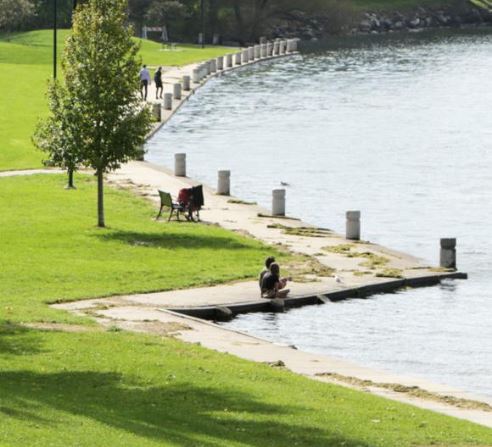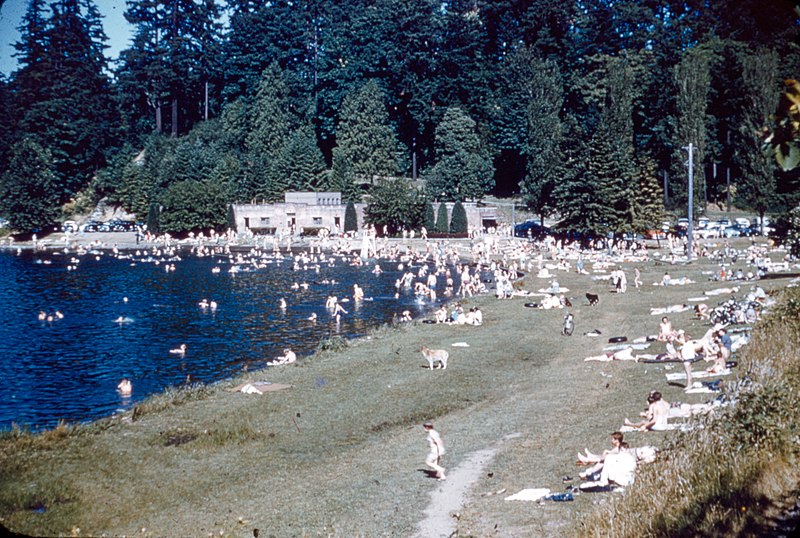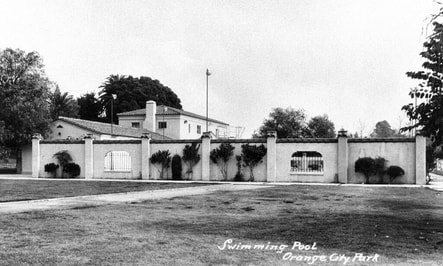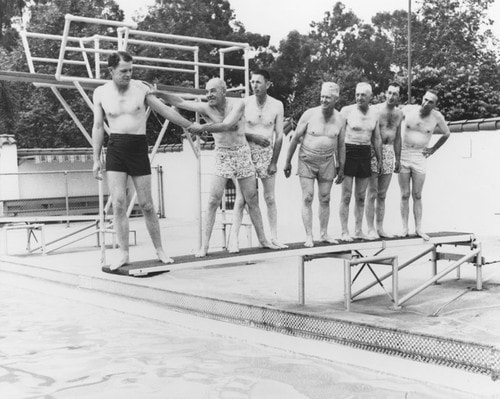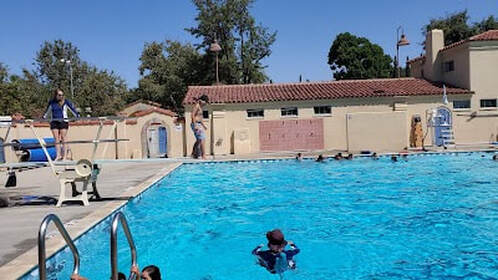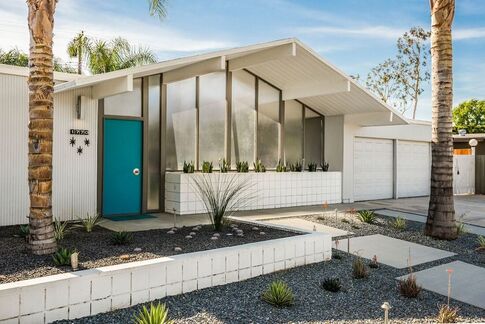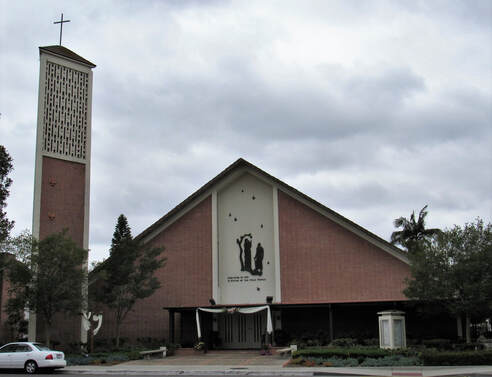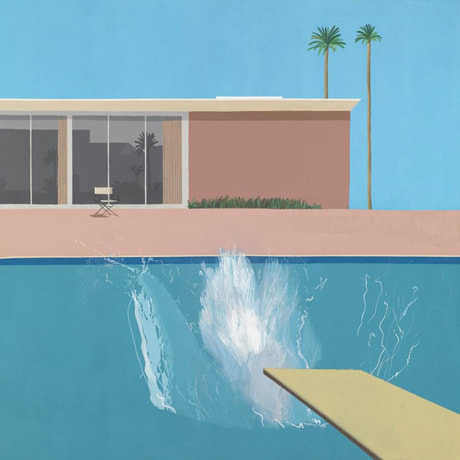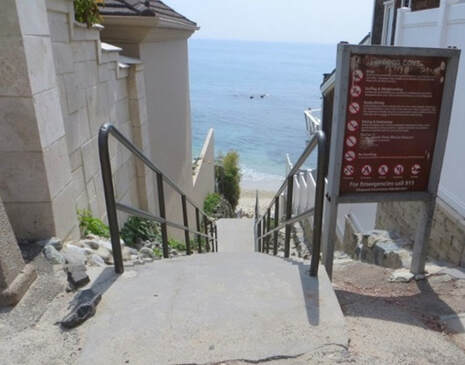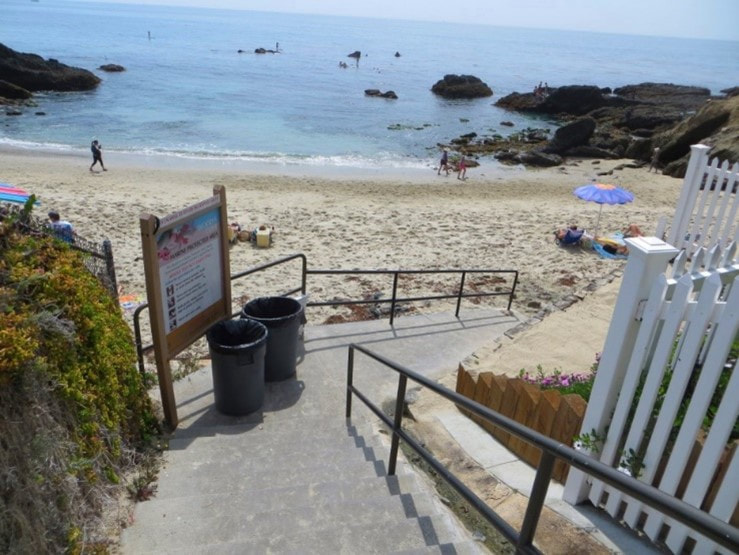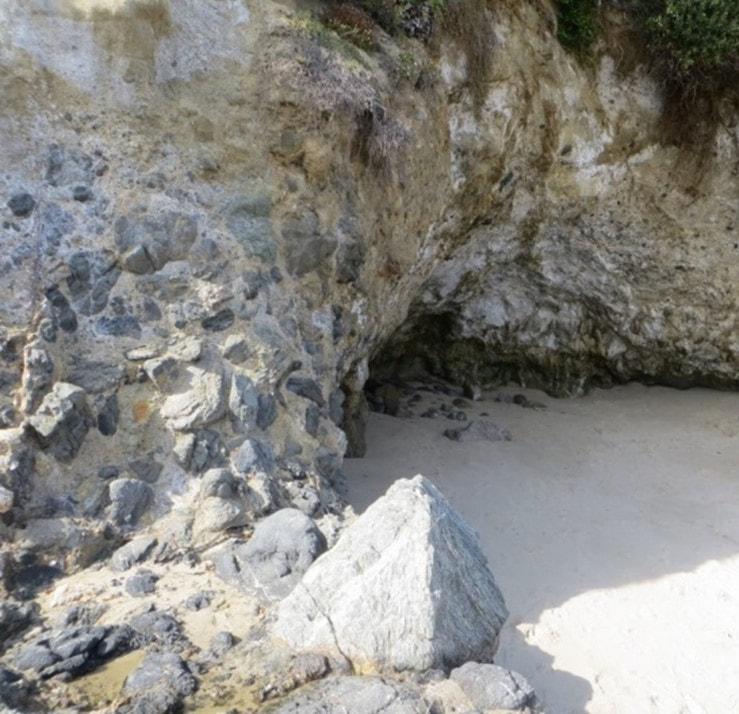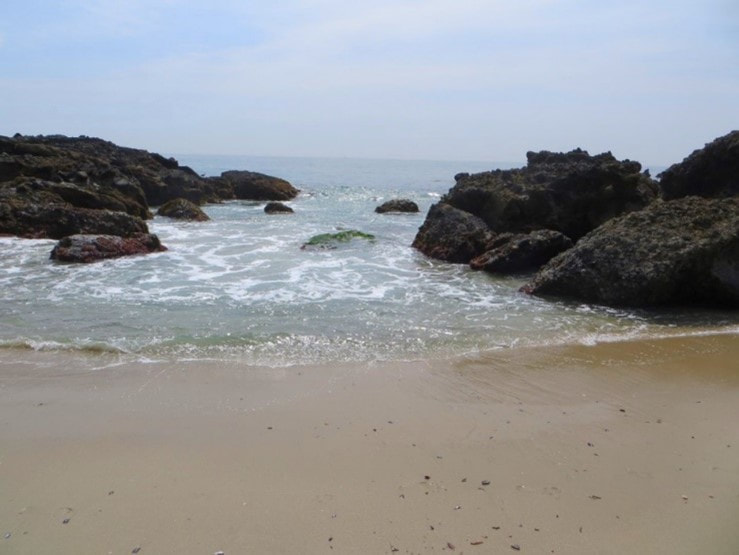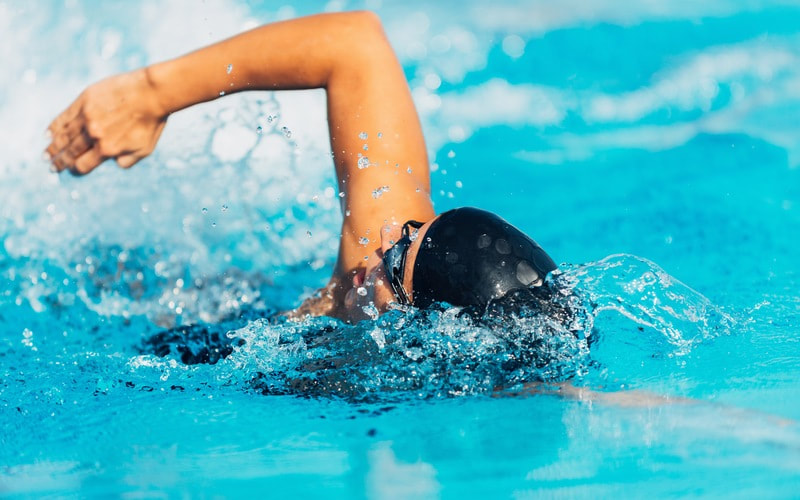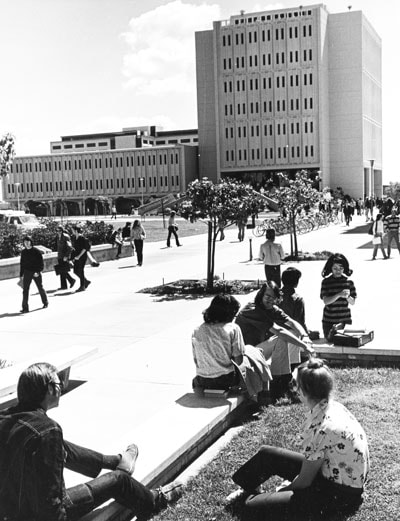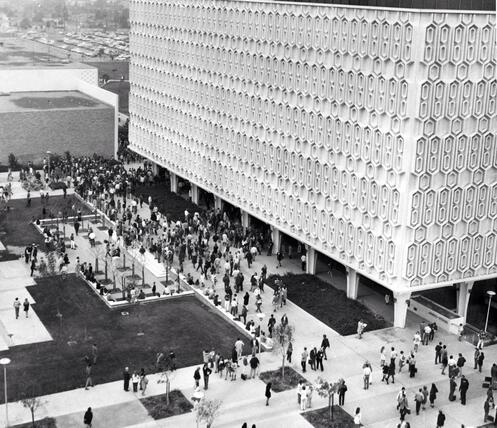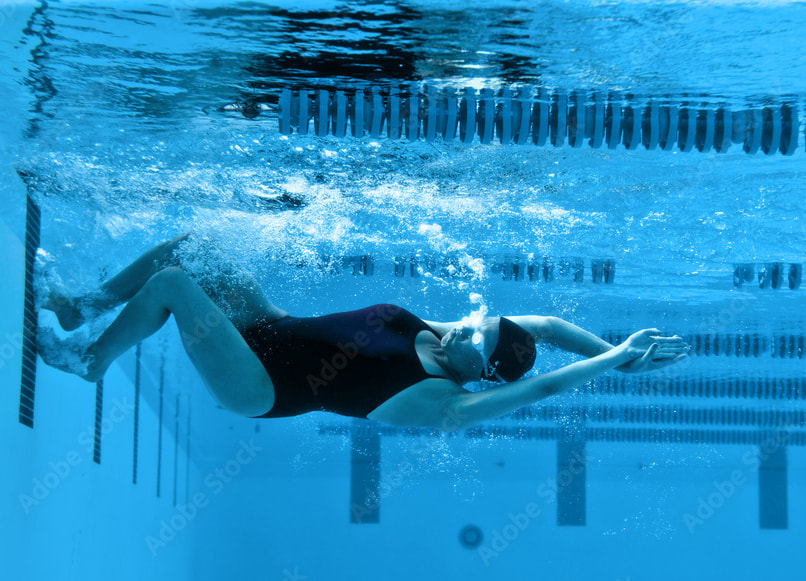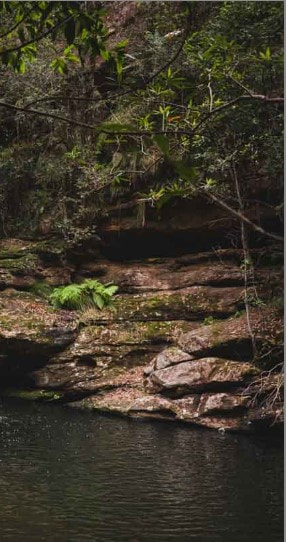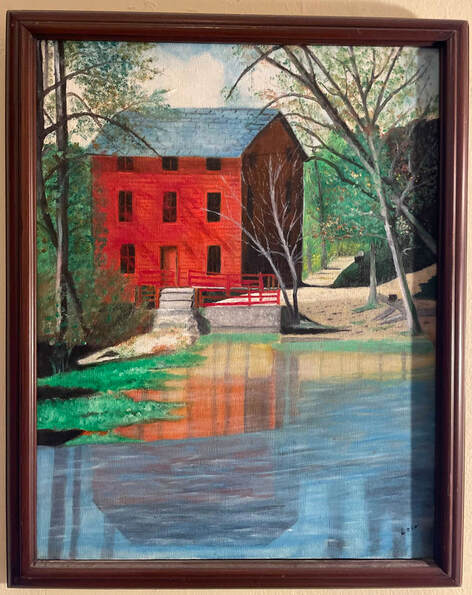Swimming Through My Life
by Shelley Pineo-Jensen, Ph.D.
UNION BAY
I attempted to learn to swim in Union Bay in Seattle at free lessons offered every summer. My mother and my siblings would walk from our tiny cottage to Madison Park Beach, taking turns pushing the stroller. My favorite memory of this time was watching my mother sitting on the bench next to the water to watch us. When we arrived, she would take a ball of string out of her purse and measured the distance from the bench to the edge of the water. Then she would tie one end of the string to her wrist and the other to the wrist of the baby. I’m the eldest of six so there was always a baby in the family. I’m not sure which baby this was but it was probably Smith, the fourth child.
I was about six the first time I took the class. I took the class for at least three years and never learned to swim. The water was just too darn cold for skinny little me. You could enter the freezing cold bay water down concrete steps and I could easily stand in water about chest high. There was a wall at the edge, just like a swimming pool.
We started by learning the dead man’s float. You just held onto the edge and floated with your eyes closed. When my brother Ronn joined the class, he cried when they said we were going to learn the “dead man’s” anything at all. Later that day, when my father learned of Ronn’s distress, he suggested that we all call it the “Superman” float, and that actually worked.
So I could do the dead man’s float and hold the edge while I kicked. I could perform a meager dog paddle, but I had to stand up ever couple feet. Every year on the last day of class, we lined up by height in the water and were expected to swim the distance between two poles (that held the rope and buoys signaling the supervised swimming area).
I paddled with all my might for about five feet and then touched ground and watched the rest of the class swim down to the finish line, earning a cool patch you could sew onto your jacket or something. I never got the patch. On the last day that I would ever take the free swimming lessons, my friend Nancy Armstrong came with us. She joined in the test and won the patch. There is a picture of us that day, somewhere in the family effects, showing big strong Nancy with weak shivering Shelley, clutching a towel around her skinny frame.
Dr. P-J
10/23/22
I was about six the first time I took the class. I took the class for at least three years and never learned to swim. The water was just too darn cold for skinny little me. You could enter the freezing cold bay water down concrete steps and I could easily stand in water about chest high. There was a wall at the edge, just like a swimming pool.
We started by learning the dead man’s float. You just held onto the edge and floated with your eyes closed. When my brother Ronn joined the class, he cried when they said we were going to learn the “dead man’s” anything at all. Later that day, when my father learned of Ronn’s distress, he suggested that we all call it the “Superman” float, and that actually worked.
So I could do the dead man’s float and hold the edge while I kicked. I could perform a meager dog paddle, but I had to stand up ever couple feet. Every year on the last day of class, we lined up by height in the water and were expected to swim the distance between two poles (that held the rope and buoys signaling the supervised swimming area).
I paddled with all my might for about five feet and then touched ground and watched the rest of the class swim down to the finish line, earning a cool patch you could sew onto your jacket or something. I never got the patch. On the last day that I would ever take the free swimming lessons, my friend Nancy Armstrong came with us. She joined in the test and won the patch. There is a picture of us that day, somewhere in the family effects, showing big strong Nancy with weak shivering Shelley, clutching a towel around her skinny frame.
Dr. P-J
10/23/22
SEWARD PARK
Near the end of my time in Seattle (my father took a master’s degree from University of Washington when I was nine and he got a job teaching in Wenatchee) we went on an outing with my Grandma Chandler, my mother’s mother.
I’ve looked at maps trying to figure out where the beach was – my guess is Seward Park. Between my mother and my grandma, there was sure to have been a fabulous lunch, perhaps fried chicken and potato salad. Maybe watermelon and cookies or cake. Or donuts. Grandma did like to buy us donuts. (“Say Pat, do you think we should stop and get some D-O-N-U-T-S?” And I would yell “YES!”)
So I found a picture of Seward Park taken in the 50s and it seems quite possible. The main thing about my life-long swimming adventure is that on this occasion, the water was NOT freezing cold. It was warm and lovely, due to the shallow nature of the geography of the shoreline. You had to walk out a long ways to get to waist deep. Jayne and I stayed near the shore and pretended to swim while actually just walking around on our hands. This led to my actually dog paddling around and figuring out that I could dog paddle quite a long distance.
This is a red-letter day in my life story because that was the day I learned to swim. I was still not confident in the water and would never swim where I could not stand up and be head above water. It was so validating to have accomplished something I had worked so hard on for so many miserable days in that cold cold water of Union Bay. I learned today it’s really called Lake Union, but whatever. That’s how I remember it.
And I can still remember how unpleasant it was to try to swim in that cold water. I tried so hard and I hated it so much. Then one day, I swam in shallow warm water and boom – I could do it. I could swim.
It makes me feel good to think about that, even today at age 71. And it does my heart good to remember Grandma Chandler. She was a sweet and gentle soul, the kind of Christian anyone could aspire to be, and merry too with a humorous wit and a kind and diplomatic nature. I feel her warmth as I feel the warmth of some beach in Seattle when I was nine years old.
Dr. P-J
10/24/22
I’ve looked at maps trying to figure out where the beach was – my guess is Seward Park. Between my mother and my grandma, there was sure to have been a fabulous lunch, perhaps fried chicken and potato salad. Maybe watermelon and cookies or cake. Or donuts. Grandma did like to buy us donuts. (“Say Pat, do you think we should stop and get some D-O-N-U-T-S?” And I would yell “YES!”)
So I found a picture of Seward Park taken in the 50s and it seems quite possible. The main thing about my life-long swimming adventure is that on this occasion, the water was NOT freezing cold. It was warm and lovely, due to the shallow nature of the geography of the shoreline. You had to walk out a long ways to get to waist deep. Jayne and I stayed near the shore and pretended to swim while actually just walking around on our hands. This led to my actually dog paddling around and figuring out that I could dog paddle quite a long distance.
This is a red-letter day in my life story because that was the day I learned to swim. I was still not confident in the water and would never swim where I could not stand up and be head above water. It was so validating to have accomplished something I had worked so hard on for so many miserable days in that cold cold water of Union Bay. I learned today it’s really called Lake Union, but whatever. That’s how I remember it.
And I can still remember how unpleasant it was to try to swim in that cold water. I tried so hard and I hated it so much. Then one day, I swam in shallow warm water and boom – I could do it. I could swim.
It makes me feel good to think about that, even today at age 71. And it does my heart good to remember Grandma Chandler. She was a sweet and gentle soul, the kind of Christian anyone could aspire to be, and merry too with a humorous wit and a kind and diplomatic nature. I feel her warmth as I feel the warmth of some beach in Seattle when I was nine years old.
Dr. P-J
10/24/22
THE ORANGE PLUNGE
After moving to Wenatchee, there were few opportunities for swimming. We drove down to see the town pool when we first moved there and discovered that it had been closed because it took its water straight out of the Columbia River, and it was no longer sanitary. The lake water at our various camping places was always very cold. Perhaps we were invited to swim once at the home of one of my father’s colleagues, but the memory is unclear. Mostly I remember that that the fatuous wife and mother (of a fat boring baby) promised us “Boston Coolers” all day while we sat around bored – there must not have been a swimming pool, right? – and finally she prepared the highly touted treat, and it was just an ordinary root beer float. Not that there is anything wrong with a root beer float but after her build up to this strange and exotic dessert, I expected something more spectacular. What did I want? Sparkers and ruby dust? But anyhow, swimming was a bust in Wenatchee.
We moved to Orange, California in 1964, the summer before eighth grade. At that time, Orange was not part of the great wasteland that is present day Orange County; it was in individual city (town?) that was bordered by orange groves and undeveloped chaparral with no other municipalities but for Santa Ana to the south. We had one car which my father used to drive to work at Santa Ana Junior College, later Santiago Community College. I walked everywhere. I rarely took my/our bicycle out of the neighborhood. I think that the one speed bike that was the delight of my Wenatchee days was just too slow and clunky; or perhaps it was that there was a possibility that it would be stolen. Walking was something I did with friends, and I had many. Many children living near me was one of the advantages of Primrose Drive from 1964 to 1970.
We moved to Orange, California in 1964, the summer before eighth grade. At that time, Orange was not part of the great wasteland that is present day Orange County; it was in individual city (town?) that was bordered by orange groves and undeveloped chaparral with no other municipalities but for Santa Ana to the south. We had one car which my father used to drive to work at Santa Ana Junior College, later Santiago Community College. I walked everywhere. I rarely took my/our bicycle out of the neighborhood. I think that the one speed bike that was the delight of my Wenatchee days was just too slow and clunky; or perhaps it was that there was a possibility that it would be stolen. Walking was something I did with friends, and I had many. Many children living near me was one of the advantages of Primrose Drive from 1964 to 1970.
I went with my family to the Orange Plunge frequently when I lived with my parents in Orange. The Plunge was the centerpiece of W.O. Hart Park, which everyone pronounced Wo (woah) Hart. In the beginning, my mother would be there. My father would drive us over and swim for about ten minutes and then disappear, probably to a nearby bar, but it was never discussed. My mother would swim with us for a while, coaching us on our swimming a bit and showing us tricks like swimming underwater and turning somersaults underwater. Then she would lay on a towel or take the baby, which at this point was Emily, outside to a free wading pool. The Primrose house had no air-conditioning, so swimming was quite a relief on those hot summer days.
Later, Jayne and I, and perhaps other siblings, would walk all the way to the plunge and spend a hard-earned quarter for entrance to paradise. I was not a good swimmer still, and for the first couple years I swam about exclusively in the shallow end. I would sometimes work my way up the side of the pool, swimming a ways and then grabbing the edge. The lifeguards didn’t like it and I would be busted. They wanted to see me swim all the way across the pool without touching down. Eventually, I could perform this feat, slowly dog-paddling the width of the Olympic sized pool. Suddenly, I was permitted to swim in “the deep end.” What a lovely sound that was – it was a major accomplishment in my swimming progress.
Later, Jayne and I, and perhaps other siblings, would walk all the way to the plunge and spend a hard-earned quarter for entrance to paradise. I was not a good swimmer still, and for the first couple years I swam about exclusively in the shallow end. I would sometimes work my way up the side of the pool, swimming a ways and then grabbing the edge. The lifeguards didn’t like it and I would be busted. They wanted to see me swim all the way across the pool without touching down. Eventually, I could perform this feat, slowly dog-paddling the width of the Olympic sized pool. Suddenly, I was permitted to swim in “the deep end.” What a lovely sound that was – it was a major accomplishment in my swimming progress.
I was, by this time, going to the pool with my friends plus my sister Jayne. We shared friends, or as she like to put it, I “stole” her friends. Perhaps this is true. The only child my age in the neighborhood was a boy and if there were any slightly older girls, I do not remember them at all. Each time we went to the plunge, we would dare one another to go off the high dive; once I had tried it, I always did one jump and rarely, a dive, on every occasion that I visited the pool. Once a day was plenty; it usually hurt some part of my body, whichever stray part was sticking out or hit the water first. Also problematic was the long swim over to the ladder. But it was a symbol of courage and daring do. Just as it scared me, it always made me proud, because it frightened me and I still did it.
I much preferred the regular diving boards but again I was constantly in trouble with the lifeguards. One time I was swimming too near where the divers entered the water. I learned a rule that one could not swim around on the side of the ladder closer to the diving boards. But my big crime was diving towards the edge of the pool, swimming straight at it, and then grabbing the edge of the pool and working my way down to the ladder. I had to prove that I could swim the width of the pool again and again. I finally learned how to just dive straight off the board and swim out as far as the ladder and then cut over.
I also learned how dive making a neat hole in the water, splitting it with my hands, and descending deep into the blue, finally swimming up when I was running out of breath. Then I would invoke my shabby dog paddle and make my way to the ladder. But the power of diving deep, of descending into the opaque abyss, was tantalizing and refreshing. Popping out onto the surface into the air was leaving a strange world of unreality and quiet into a cacophonous party, jagged sounds interrupted by splashing water and shrieks. The other girls like to lay on their towels and “sun-bathe” but I spent nearly every minute in the cool oasis, swimming underwater with my eyes open like a bigger girl, suffering the chlorine sting for the silence and the solitude.
Dr. P-J
10/25/22
I much preferred the regular diving boards but again I was constantly in trouble with the lifeguards. One time I was swimming too near where the divers entered the water. I learned a rule that one could not swim around on the side of the ladder closer to the diving boards. But my big crime was diving towards the edge of the pool, swimming straight at it, and then grabbing the edge of the pool and working my way down to the ladder. I had to prove that I could swim the width of the pool again and again. I finally learned how to just dive straight off the board and swim out as far as the ladder and then cut over.
I also learned how dive making a neat hole in the water, splitting it with my hands, and descending deep into the blue, finally swimming up when I was running out of breath. Then I would invoke my shabby dog paddle and make my way to the ladder. But the power of diving deep, of descending into the opaque abyss, was tantalizing and refreshing. Popping out onto the surface into the air was leaving a strange world of unreality and quiet into a cacophonous party, jagged sounds interrupted by splashing water and shrieks. The other girls like to lay on their towels and “sun-bathe” but I spent nearly every minute in the cool oasis, swimming underwater with my eyes open like a bigger girl, suffering the chlorine sting for the silence and the solitude.
Dr. P-J
10/25/22
MEG'S HOUSE
Besides the Orange Plunge, I had other opportunities to swim when I lived on Primrose Drive. The most frustrating swimming experience of my life was when I would join my friends, all girls, on the patio of Meg’s house. It would be summer, and it would be hot, hot, hot. We would all have our swimsuits on underneath our clothes in hopes that Meg would invite us to go swimming.
All the houses on Primrose Drive were pseudo-Eichler homes, cheaper versions, each built to one of four patterns, sometimes mirrored. There were some well-established trees, so the neighborhood was old even in 1964. Most of the landscaping was of a style I think of as “Southern California” with palms, bird of paradise, oleander, cactus, and the occasional dichondra lawn.
All the houses on Primrose Drive were pseudo-Eichler homes, cheaper versions, each built to one of four patterns, sometimes mirrored. There were some well-established trees, so the neighborhood was old even in 1964. Most of the landscaping was of a style I think of as “Southern California” with palms, bird of paradise, oleander, cactus, and the occasional dichondra lawn.
Meg was as young as the youngest of our group. She didn’t usually play with us; she was a loner, shy, and she attended school at Holy Family, the giant Catholic church complex up on Glassell. She wore a uniform and her dad drove her and her brother there. So, we didn’t know this girl well but we were perfectly willing to be friends with her because we wanted to swim in her swimming pool.
The backyard of Meg’s house was dominated by a kidney-shaped swimming pool set in a concrete patio that extended to the surrounding concrete block fence. There were very few plants; leaves are apparently an anathema to swimming pool maintenance. The swimming pool at Meg’s house was straight out of a David Hockney painting. It was an oasis in an otherwise sere sterile desert. Refreshing coolness, the quiet of life beneath the surface disrupting the boredom of blistering heat. Hope in the midst of hopelessness.
So we would idle away the hours, trying to lure Meg into playing the kinds of games we liked to play. We liked to listen to music and pretend to be the singers, lip syncing, usually to the Beatles, but whatever 45 someone had would be fine. I had two 45s, “Wooly Bully” (given to me by my adorable Uncle Dave, because he had two copies) and “Get Off My Cloud” which I won at Monica’s birthday party in a limbo contest. Being short has its advantages.
We liked to pretend to be radio show interviewers on Jayne’s cool little reel to reel tape recorder. We liked to play Truth or Dare. Meg did not like to play any of these games. We spent a lot of time telling her the advantages to them. We would eventually end up playing Rummy with a child’s deck, or just talk.
Meg had us, like puppets on a string. No matter how annoying, bland, or passive aggressive she was, the omnipresent heat kept us in her thrall. We would go home for lunch and then come back, idling away the day. It was too hot for any action activities, and no one had air conditioning back in those days, so hiding in someone’s house would bring no respite.
It was excruciating. It was boring. But sometimes, Meg would decide that she did want to swim, usually after her mother would come out and say something to encourage it. We were like the pigeons in an operant conditioning test with an intermittent reinforcer, pecking away at that button to get a pellet of food 1000 times with no result . . .
The most interesting occasion, the one that revealed all to my 8th grade mind, was the time Meg’s mother came out and said, “Oh its so hot. Meg, why don’t you invite your friends to go swimming. We were rising from our chairs in joy when we hear Meg intone dryly, with ennui oozing from her very pores.
“Oh, I don’t really feel like swimming.”
Meg’s mom had an answer. “That’s okay. You don’t have to swim. Just go sit out by the pool while your friends swim.”
We were overjoyed. We went swimming. But that was when I stopped hanging out at Meg’s house.
Dr. P-J
12/1/22
We liked to pretend to be radio show interviewers on Jayne’s cool little reel to reel tape recorder. We liked to play Truth or Dare. Meg did not like to play any of these games. We spent a lot of time telling her the advantages to them. We would eventually end up playing Rummy with a child’s deck, or just talk.
Meg had us, like puppets on a string. No matter how annoying, bland, or passive aggressive she was, the omnipresent heat kept us in her thrall. We would go home for lunch and then come back, idling away the day. It was too hot for any action activities, and no one had air conditioning back in those days, so hiding in someone’s house would bring no respite.
It was excruciating. It was boring. But sometimes, Meg would decide that she did want to swim, usually after her mother would come out and say something to encourage it. We were like the pigeons in an operant conditioning test with an intermittent reinforcer, pecking away at that button to get a pellet of food 1000 times with no result . . .
The most interesting occasion, the one that revealed all to my 8th grade mind, was the time Meg’s mother came out and said, “Oh its so hot. Meg, why don’t you invite your friends to go swimming. We were rising from our chairs in joy when we hear Meg intone dryly, with ennui oozing from her very pores.
“Oh, I don’t really feel like swimming.”
Meg’s mom had an answer. “That’s okay. You don’t have to swim. Just go sit out by the pool while your friends swim.”
We were overjoyed. We went swimming. But that was when I stopped hanging out at Meg’s house.
Dr. P-J
12/1/22
LAGUNA BEACH
Moving to the house on Primrose Drive in Orange, California in 1964 was a huge loss for my sister Jayne and I. We had loved Wenatchee. But there were certain undeniable advantages, including the number of children who lived nearby. In Wenatchee our house was alone on our side of the street and our nearest neighbors on the other side of the street had no children in evidence. I had to walk several blocks to get to the home of any child my age, and these children were a real compromise, as far as friends are concerned.
On Primrose Drive there were children in almost every house on a street of tract homes. We played until the streetlights came on, as the saying goes, with some games including as many as 20 children. One game we liked to play was a large group Hide and Seek activity we called “Butterfly.”
One of the other huge advantages of our new location was proximity to a beach where the water wasn’t freezing cold year-round. Newport Beach was a common destination for most folks – a long stretch of white sand with lifeguard towers provided a sense of security. But that water was still pretty cold for my taste.
My mother and father found a better place to swim at Woods Cove in Laguna Beach. We went there many Sundays in the summer. First my mom would fry up a bunch of chicken and keep it warm in a giant blue enamel roasting pan. She would make potato salad. Dad would pack it up in the car; we kids would put on our swimsuits under some clothes, grab a towel, and pile into the car. Eight people in one car with no safety belts. Yep.
The drive was interesting. The place was uncluttered by the million additional tract houses and strip malls that have gone in since those days in the last half of the ‘60s. You could see giant Quonset-hut-like blimp hangars at El Toro clearly on the way down and there were still orange groves everywhere. When you got to the top of Laguna Canyon, you entered a magical space, descending from a grove of orange trees into chaparral and rough hills, with occasional homes, then into a section of funky bohemian dwellings with artistic displays. Finally, you got to the edge of town and the town’s commitment to art became more evident in sculpture and other outdoor art. When you got to the Pacific Coast Highway, PCH for short, you could see the ocean; there was a public beach there.
We turned left and the Laguna Greeter was there on the right, waving at everyone who passed. We waved back. We drove down the coast a half a mile or so and then looked for a parking place as close to the stairs as possible. We lugged down all the food and other trappings of my mother’s logistics (later to be renamed “military maneuvers” by those who traveled with her after my dad died).
On Primrose Drive there were children in almost every house on a street of tract homes. We played until the streetlights came on, as the saying goes, with some games including as many as 20 children. One game we liked to play was a large group Hide and Seek activity we called “Butterfly.”
One of the other huge advantages of our new location was proximity to a beach where the water wasn’t freezing cold year-round. Newport Beach was a common destination for most folks – a long stretch of white sand with lifeguard towers provided a sense of security. But that water was still pretty cold for my taste.
My mother and father found a better place to swim at Woods Cove in Laguna Beach. We went there many Sundays in the summer. First my mom would fry up a bunch of chicken and keep it warm in a giant blue enamel roasting pan. She would make potato salad. Dad would pack it up in the car; we kids would put on our swimsuits under some clothes, grab a towel, and pile into the car. Eight people in one car with no safety belts. Yep.
The drive was interesting. The place was uncluttered by the million additional tract houses and strip malls that have gone in since those days in the last half of the ‘60s. You could see giant Quonset-hut-like blimp hangars at El Toro clearly on the way down and there were still orange groves everywhere. When you got to the top of Laguna Canyon, you entered a magical space, descending from a grove of orange trees into chaparral and rough hills, with occasional homes, then into a section of funky bohemian dwellings with artistic displays. Finally, you got to the edge of town and the town’s commitment to art became more evident in sculpture and other outdoor art. When you got to the Pacific Coast Highway, PCH for short, you could see the ocean; there was a public beach there.
We turned left and the Laguna Greeter was there on the right, waving at everyone who passed. We waved back. We drove down the coast a half a mile or so and then looked for a parking place as close to the stairs as possible. We lugged down all the food and other trappings of my mother’s logistics (later to be renamed “military maneuvers” by those who traveled with her after my dad died).
The walk to our preferred spot at the beach was arduous due to a long steep staircase but soon enough we entered the cool refreshing space of ocean breeze. We turned left and marched through sand around a bit of cliff to the southern end of the cove. We were always first. We had the whole little area to ourselves. We laid out blankets and my mother served out mountains of delicious food.
My mother is the best cook in the world, and I have one witness who is not a relative to verify this fact. My dear friend Jean, who has known my family since she and I attended Orange High School, has freely admitted that my mother is, indeed, the best cook in the world, except for pies, which Jean claims for her own mother. I won’t dispute it, although my mother’s pies were spectacular. And so many types: double crust pies of apple, peach, mincemeat; single crust pies of lemon meringue, key lime, rum, pecan; lattice-topped cherry pie, and a chocolate mousse pie with a gigantic chocolate meringue “crust” . . . but I digress.
Sometimes I played in the sand near my mother’s encampment, building sandcastles and digging for sand crabs, or reading from my latest book, but most of the time I spent body surfing. When you first came down the stairs you faced a wide space of waves bounded by two giant rock formations. In that space the waves came in high, and people were body surfing. I copied them and learned a new way to interact with the water.
It wasn’t really swimming, and my swimming was still a pathetic and weak dogpaddle. The water was so much warmer than it was at Newport Beach.
I felt tremendous joy, riding along effortlessly, feeling the power of the wave driving me forward. Body surfing allowed me to relax and just feel my body.
The colors were vivid, green and blue of the sea, golden yellow sand, brown and grey cliffs splotched with green and gray green of ice plant and coastal shrubs, and above it all, half the world, a clear blue sky. Today, I long for the smell of the Pacific Ocean, scented with sage.
Dr. P-J
1/4/23
CAL STATE FULLERTON
As a young person in the US public education system, I was forced to take physical education classes. In elementary school PE was more like an organized recess held a few times a week. I enjoyed volleyball, except that time when I got hit in the face. But PE became a required course starting in seventh grade. Occasionally, I found these classes enjoyable, but most of the time I hated them.
I hated the locker room, getting undressed in front of a room full of strangers, being required to get naked and take a shower with a bunch of other girls, having a woman with a clipboard watching me and making marks about me – was my blouse ironed? – did I really take a shower and wash my pits? – and the final indignity, having things stolen from me when I managed to leave them unsecured.
Oh and side note: no, my PE blouse was NOT really ironed. I was and remain dangerous with an iron, pressing unsightly creases into the garment and more likely to burn myself than to produce a neat effect. So every Monday I took that un-ironed white blouse and tossed it in the dryer and folded it hot. And YES I lied to the face of any PE teacher who dared to challenge me. That brief look of puzzlement and then the little shake of the head and then the lie. Boys wore shirts that didn’t need to be ironed. Boys were not challenged on Monday, “Did you really iron that shirt.” Nope.
And I hated the content in PE. I was bad a pretty much every sport. I was short and disliked the physical competition. I disliked participating in an activity where my intelligence was of little use and girls who were stupid as a box of rocks could best me just by being bigger. Basketball? I was too short. Field Hockey? “Sticks!” (Which meant that some dumb ox had her weapon raised higher than her waist. People got hurt.) Tennis? Running around chasing a little bouncy ball that I had again failed to hit. Handball? It made my hand hurt.
Sport after sport for six years where I had no chance of being the best and little chance of being competent. And worst of all, no matter how hard I tried, I couldn’t earn a good grade. Grades were distributed based on successful competition. Getting an A on the rules test could keep me in the C zone while depriving my illiterate peers an A.
I did enjoy tumbling in seventh grade, at John Glenn Junior High School in Wenatchee Washington. Learning how to fall into a forward roll was very useful. But at Portola Junior High School in Orange, California, where I attend eighth and ninth grades, the social system was cruel. I thought it was like a concentration camp for children. The PE experience was no exception. Having other girls remarking on your lack of breasts and pubic hair? Wrapped up in a tiny towel while a woman with a clipboard put a check by your name if she deemed that you had showered sufficiently. Being sent back to get cleaner? It was humiliating and I hated it.
So it is remarkable, strange, that when I graduated high school and started attending college I still took physical education classes. For my first few semesters I harbored a belief that a person in school must take PE. My first semester, I took a swimming class.
I looked over the different PE classes and settled on swimming because I wanted to learn how to swim plus it was hot in September in sunny Southern California. The main pool was gigantic and there was a second pool that was pretty large as well. The whole thing was only a few years old, very clean. The architecture of Cal State Fullerton was very austere – what I call “prison modern,” not unlike University of California at Irvine.
I hated the locker room, getting undressed in front of a room full of strangers, being required to get naked and take a shower with a bunch of other girls, having a woman with a clipboard watching me and making marks about me – was my blouse ironed? – did I really take a shower and wash my pits? – and the final indignity, having things stolen from me when I managed to leave them unsecured.
Oh and side note: no, my PE blouse was NOT really ironed. I was and remain dangerous with an iron, pressing unsightly creases into the garment and more likely to burn myself than to produce a neat effect. So every Monday I took that un-ironed white blouse and tossed it in the dryer and folded it hot. And YES I lied to the face of any PE teacher who dared to challenge me. That brief look of puzzlement and then the little shake of the head and then the lie. Boys wore shirts that didn’t need to be ironed. Boys were not challenged on Monday, “Did you really iron that shirt.” Nope.
And I hated the content in PE. I was bad a pretty much every sport. I was short and disliked the physical competition. I disliked participating in an activity where my intelligence was of little use and girls who were stupid as a box of rocks could best me just by being bigger. Basketball? I was too short. Field Hockey? “Sticks!” (Which meant that some dumb ox had her weapon raised higher than her waist. People got hurt.) Tennis? Running around chasing a little bouncy ball that I had again failed to hit. Handball? It made my hand hurt.
Sport after sport for six years where I had no chance of being the best and little chance of being competent. And worst of all, no matter how hard I tried, I couldn’t earn a good grade. Grades were distributed based on successful competition. Getting an A on the rules test could keep me in the C zone while depriving my illiterate peers an A.
I did enjoy tumbling in seventh grade, at John Glenn Junior High School in Wenatchee Washington. Learning how to fall into a forward roll was very useful. But at Portola Junior High School in Orange, California, where I attend eighth and ninth grades, the social system was cruel. I thought it was like a concentration camp for children. The PE experience was no exception. Having other girls remarking on your lack of breasts and pubic hair? Wrapped up in a tiny towel while a woman with a clipboard put a check by your name if she deemed that you had showered sufficiently. Being sent back to get cleaner? It was humiliating and I hated it.
So it is remarkable, strange, that when I graduated high school and started attending college I still took physical education classes. For my first few semesters I harbored a belief that a person in school must take PE. My first semester, I took a swimming class.
I looked over the different PE classes and settled on swimming because I wanted to learn how to swim plus it was hot in September in sunny Southern California. The main pool was gigantic and there was a second pool that was pretty large as well. The whole thing was only a few years old, very clean. The architecture of Cal State Fullerton was very austere – what I call “prison modern,” not unlike University of California at Irvine.
I had not really thought out the timing of my schedule. I had another class right after swimming and I had to run like hell across campus to get there on time, rushing in to a 250-seat auditorium at the last minute, out of breath, with my hair dripping wet. But I was 19. I had the chops. I did not feel the need to present myself as a pretty girl. I did not wear makeup on a regular basis. I fixed my hair any way that amused me. I wore clothes to suit myself, not to fit an image of what a pretty girl was supposed to wear. I really didn’t care what people thought about me in that regard. I did care that my ideas were respected, that I was perceived to be intelligent, productive, honest, worth knowing, a person of utility and value. This was and is what I look for in others and people who aren’t looking for these kinds of characteristics in others a probably not worth the effort. My biggest complaint about another person is that they bore me, quite frankly. So rushing into class out of breath in an unfashionable state didn’t concern me. And I liked the swimming on a hot day a lot.
So three times a week I learned to swim. There were five strokes to master, the crawl, the breaststroke, the butterfly, the back stroke, and the side stroke. I loved the back stroke and side stroke, which made swimming so easy, but what I chiefly remember is the butterfly. The sense of power I felt was delicious, as I plunged into the cool aqua-flavored water, lunging my way across the pool. Learning how to make a turn and kick off the side of the pool was empowering, not just physically, but also emotionally – psychically. And all in cool blue water beneath clear pale blue skies.
So I finally learned to swim beyond my rudimentary dogpaddle and I took my new skills with me in a new kind of life, a life where I could enter the water unafraid that I would get too far from the edge of the pool or the shore. I am grateful to the swimming teachers at Cal State Fullerton in 1969 and yes, I got an A. It was the only A I got that semester . . . but that’s a story for another day.
Dr. P-J
1/21/23
So I finally learned to swim beyond my rudimentary dogpaddle and I took my new skills with me in a new kind of life, a life where I could enter the water unafraid that I would get too far from the edge of the pool or the shore. I am grateful to the swimming teachers at Cal State Fullerton in 1969 and yes, I got an A. It was the only A I got that semester . . . but that’s a story for another day.
Dr. P-J
1/21/23
SHADY RESERVOIR
One time, when I was 19, I went camping in the Los Padres National Forrest. It wasn’t much of a campground – dry scrub rather than tall trees, but at least away from the asphalt and car fumes that defined Orange County in the early 70s. Those were the days of “smog alerts.”
While we were packing to leave, my companion kneeled on a scorpion while rolling up the tent. It bit him through his jeans. But it took a while for him to experience symptoms. Don’t worry, it just made him a little sick and then he got better. So there was that. The whole camping trip was unsatisfying. Dry, dirty, and hot.
It was too warm on the way home, winding our way through the twists and turns of Highway 33 going south through mountains alongside the North Fork of Matilija Creek. We were in his beautiful blue convertible automobile, a ‘49 Plymouth, so no air conditioning.
He noticed a bunch of cars parked at the side of the road, in the middle of nowhere, and he suddenly pulled over and parked amongst them. I was puzzled. He said he wanted to check something out and hopped out of the car and went down the road and quickly out of sight around a curve.
He was back a few minutes later, telling me to put on my swimsuit. Life was simple back then. I was young and spry, still in my first round of college, and I could easily find and don my swimsuit in the car. I used to wear go-aheads, which is a kind of flip-flop sandal. Did I even have a towel? I wouldn’t even have cared.
I followed him down the road to a path that zig-zagged down the side of a steep ravine to where a quick creek tumbled through the forest. We followed the path a short ways, coming closer to the sound of voices chattering. Then we came around the last bend and stood before a small reservoir, not bigger than an Olympic-sized swimming pool.
The voices ceased and a score of young people were staring at us from various perches around the edge of the pond. My companion was shy by nature, so he said nothing and just got down into the pool. Silently, I followed. The water was cool and refreshing on that hot dry day. It instantly cleansed the camping dirt and road dust from my body. I swam out into the pool while he found an empty spot along the edge of the pond and relaxed. He closed his eyes, and all was quiet. The sounds of the stream and the sounds of birds were the only audio.
The quiet didn’t last nor did the staring at the outsiders. First there was a gentle murmur of voices down by the dam end of the pool, then some soft talking nearer by, and soon the low cackle of voices joking, kids softly laughing, and splashing and diving restored the pond to its previous status. We were not included. We were not rejected. We were mildly ignored.
This episode of swimming sticks in my mind all these years later (in my 70s) because of the calm enjoyment of cool musky creek water on a hot day, of the utter contentment of slipping into the pool, in the shade, in a pretty place, with the sound of the creek upstream tumbling into stillness.
The water was green colored, from the trees and the shade, and opaque, from being stirred up by the swimmers. The dam and other structural elements were old concrete, looking to have been in built the 30s, by my guess. I swam gently. I was a nymph. I was a water lily.
It is a moment in time, in the recorded history of this body, of absolute pleasure and refreshment, a soothing memory that comes back to me during my daily yoga practice. When I get to the part of yoga where I stand up straight and tall, breathing in 1-2-3-4, hold 1-2-3-4, and then exhaling while rolling my head back gently 1-2-3-4, and hold 1-2-3-4, then repeating in the other “cardinal” directions, my gaze falls upon a painting by Grandma Lola. It is a copy she made for me of one of her paintings. She had dozens of them crammed onto the walls of her bedroom after she became my spouse’s parents’ decaying dependent.
The painting is of a mill pond. The copy is not as good as the original, which is a quiet scene that evokes several planes or dimensions. This is not really like the pond in my story, because the pond in the painting is in an open area with a road leading up to it, whereas the pond of this story is down at the bottom of a steep sided gully, shaded rather than open.
But still, every day when I look at the picture, I am transported back to that swim. I can feel the cool water calming jangled nerves. I can smell the musty scent of the forest and the mossy-edged pond. I am submerged up to my eyes and ears, looking out at the green expanse . . . treading water, floating, swimming gently, with the sound of young voices ebbing and flowing, no real words or content, no distress or conflict, just a warm human presence, nearby.
Swimming through my life, I am restored.
Dr. P-J
12/1/23
While we were packing to leave, my companion kneeled on a scorpion while rolling up the tent. It bit him through his jeans. But it took a while for him to experience symptoms. Don’t worry, it just made him a little sick and then he got better. So there was that. The whole camping trip was unsatisfying. Dry, dirty, and hot.
It was too warm on the way home, winding our way through the twists and turns of Highway 33 going south through mountains alongside the North Fork of Matilija Creek. We were in his beautiful blue convertible automobile, a ‘49 Plymouth, so no air conditioning.
He noticed a bunch of cars parked at the side of the road, in the middle of nowhere, and he suddenly pulled over and parked amongst them. I was puzzled. He said he wanted to check something out and hopped out of the car and went down the road and quickly out of sight around a curve.
He was back a few minutes later, telling me to put on my swimsuit. Life was simple back then. I was young and spry, still in my first round of college, and I could easily find and don my swimsuit in the car. I used to wear go-aheads, which is a kind of flip-flop sandal. Did I even have a towel? I wouldn’t even have cared.
I followed him down the road to a path that zig-zagged down the side of a steep ravine to where a quick creek tumbled through the forest. We followed the path a short ways, coming closer to the sound of voices chattering. Then we came around the last bend and stood before a small reservoir, not bigger than an Olympic-sized swimming pool.
The voices ceased and a score of young people were staring at us from various perches around the edge of the pond. My companion was shy by nature, so he said nothing and just got down into the pool. Silently, I followed. The water was cool and refreshing on that hot dry day. It instantly cleansed the camping dirt and road dust from my body. I swam out into the pool while he found an empty spot along the edge of the pond and relaxed. He closed his eyes, and all was quiet. The sounds of the stream and the sounds of birds were the only audio.
The quiet didn’t last nor did the staring at the outsiders. First there was a gentle murmur of voices down by the dam end of the pool, then some soft talking nearer by, and soon the low cackle of voices joking, kids softly laughing, and splashing and diving restored the pond to its previous status. We were not included. We were not rejected. We were mildly ignored.
This episode of swimming sticks in my mind all these years later (in my 70s) because of the calm enjoyment of cool musky creek water on a hot day, of the utter contentment of slipping into the pool, in the shade, in a pretty place, with the sound of the creek upstream tumbling into stillness.
The water was green colored, from the trees and the shade, and opaque, from being stirred up by the swimmers. The dam and other structural elements were old concrete, looking to have been in built the 30s, by my guess. I swam gently. I was a nymph. I was a water lily.
It is a moment in time, in the recorded history of this body, of absolute pleasure and refreshment, a soothing memory that comes back to me during my daily yoga practice. When I get to the part of yoga where I stand up straight and tall, breathing in 1-2-3-4, hold 1-2-3-4, and then exhaling while rolling my head back gently 1-2-3-4, and hold 1-2-3-4, then repeating in the other “cardinal” directions, my gaze falls upon a painting by Grandma Lola. It is a copy she made for me of one of her paintings. She had dozens of them crammed onto the walls of her bedroom after she became my spouse’s parents’ decaying dependent.
The painting is of a mill pond. The copy is not as good as the original, which is a quiet scene that evokes several planes or dimensions. This is not really like the pond in my story, because the pond in the painting is in an open area with a road leading up to it, whereas the pond of this story is down at the bottom of a steep sided gully, shaded rather than open.
But still, every day when I look at the picture, I am transported back to that swim. I can feel the cool water calming jangled nerves. I can smell the musty scent of the forest and the mossy-edged pond. I am submerged up to my eyes and ears, looking out at the green expanse . . . treading water, floating, swimming gently, with the sound of young voices ebbing and flowing, no real words or content, no distress or conflict, just a warm human presence, nearby.
Swimming through my life, I am restored.
Dr. P-J
12/1/23
